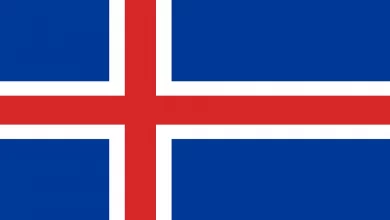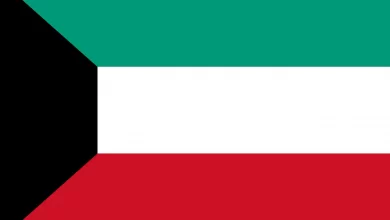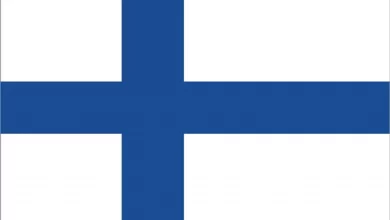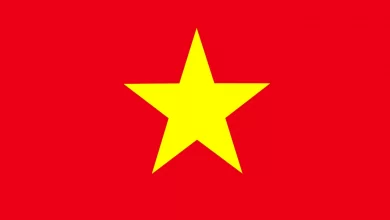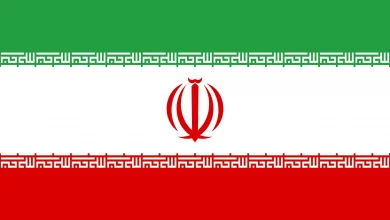Greece has Europe’s longest coastline and is the continent’s southernmost country. The country is divided into three geographical regions: the mainland, the islands, and the Peloponnese peninsula to the south of the mainland. The Greeks contributed significantly to philosophy, mathematics, astronomy, and medicine. They were well-known for their sophisticated sculpture and architecture. Greek culture had an impact on the Roman Empire and many other civilizations, and it continues to affect modern cultures today.
- Greece lies in the south of Europe. It is bordered in the north by Albania, north Macedonia, and Bulgaria, turkey, and Aegean sea to the east and Cretan and the Libyan Seas to the west.
- Ancient Greece is known to be the first democracy in the world which lasted for 185 years. However, 40% to 80% of the Athens population were slaves.
- The country was the most advanced economy on the planet in the 5th and 4th centuries B.C.
- The ancient Greeks had no particular word for religion.
- In ancient Greek, the word ‘idiot’ meant anyone who was not a politician.
- The word ‘school’ is derived from Greek which means ‘leisure.’
- The national anthem of Greece has 158 verses, but only two of them are ever sung.
- It is mandatory for every citizen of Greece to vote in the elections.
- Greece is one of the most productive marble exporting countries in the world. They export 75-85% of its total marble harvest and produce about 1,400,000 tons of marble each year.
- Approximately 98% of the people in the country are ethnic Greeks. Turks are the largest minority group. Other minorities are Albanians, Armenians, Macedonians, Bulgarians, and gypsies.
- About 12 million people around the world speak the Greek language. They live mostly in Albania, Greece, Italy, Cyprus, Turkey, the United States.
- The Greek language is the most ancient language in the world, which is still in use. The Greek language has very much influenced English with several thousand words.
- The most popular location for tourists in Greece is the city of Rhodes. The city is home to one of the seven wonders of ancient Greece: the Colossus of Rhodes.
- The largest of the Dodecanese Islands, Rhodes Island is one of Europe’s sunniest islands which receive 3000 hours or 300 days of sunshine.
- The first Olympic Games took place in 776 B.C. in the country. The first Olympic championship was won by a Greek cook named coroebus, who won the sprint race.
- Greece has the richest wildlife in entire Europe, including 116 species of mammals, 18 amphibians, 59 reptiles, 240 birds, and 107 fish. About half of the endemic mammal species are in danger of becoming extinct.
- Greece was the first to organize a municipal dump in the Western world around 500 B.C.
- Many Jews were sent to concentration camps throughout Europe during the nazi invasion of Greece in World War II. By the end of the war, the Jewish population in the country fell from 78,000 to under 13,000.
- The deceased are still buried in Greece, as the Greek Orthodox Church forbids cremation. The body is exhumed five years after a burial, and the bones are washed with wine first and then placed in an ossuary. This is done in part to alleviate the land shortage in Greek cemeteries.
- In 2009, the national debt of Greece was greater than the GDP of the country. Its credit rating, or perceived debt repayment capability, is the lowest in the euro zone. The E.U. and the I.M.F. are considering a bailout package for the heavily indebted nation.
- Greek has been spoken for over 3,000 years and is thus one of the oldest languages in Europe. Greeks don’t live to wave with open-hand. In fact, showing the palm of the hand with your fingers extended is considered an insult. Greeks wave with the closed hand.
- In Greece, no location is more than 137 kilometers (85 miles) from the sea. Greece has a coastline of around 9,000 miles, which stands to be in 13th position in the world.
- The country has more than 2,000 islands, of which about 170 are inhabited.
- Once upon a time, Greece was a massive rock completely submerged. The collision formed mountainous ranges of Greece when a tectonic plate crashed into Europe. The plate starts to push and caused earthquakes all over the Aegean.
- Soldiers (hoplites) in ancient Greece used to wore bronze armor of 33kg(70 pounds).
- Herodotus (484-425 B.C.) was considered to be the first historian. He was the author of the first great book in history, which was on Greco-Persian wars.The book of Herodotus is an essential reference in the novel The English Patient.
- Sparta’s left ancient Greece in ruins and marked the end of the golden age of Greece.
- The term “Ancient Greece” usually refers to the time between 750 B.C. and 30 B.C.
- The ancient and modern name of the country is Hellas or Hellada, and the official name is the Hellenic Republic “Helliniki Dimokratia.”
- Greece has one of the lowest divorce rates in the European Union. Greece traditionally also has the highest abortion rates.
- The drachma is the oldest currency in Europe. It is 2650 years old and was replaced by the euro in 2002.
- Greece owns one of the world’s largest fleets. Two of the better-known Greek shipping businessmen are Aristotle Onassis and Stavros Niarchos (“The Golden Greek”).
- Greece has more archaeological museums than any other country in the world. It also holds a number of UNESCO heritage sites.
- Football is the most popular sport and is the national sport of Greece.
- In Greece, people celebrate the “name day” of the saint that bears their name rather than their own birthday.
- Every citizen of the country who achieves the age of 18 must serve in the army for at least one year.
- Greece is the most sexually active country on planet earth.
- One of the most popular historical kings, Alexander the Great, was from Greece. He took the throne in 336 B.C.E., and his kingdom was covered in 3000 miles(4828 km).
- Mount Olympus is the highest mountain in the country, with an elevation of 2917m (9570ft).
- The longest rivers flowing in Greece are the Evros(480 km) and the Axios Rivers(388km). However, both originate from bordering countries outside Greek territory.
- One-third or 30.3% of the total country’s land is covered in forest that is about 3,903,000 hectares.
- There are 12 national parks in the country, out of which Alonnisos Marine Park is the biggest national park.
- Dolphin is the national animal of Greece. The reason dolphin is taken up as a national animal is largely based on myths, including Greek gods. Greeks consider Dolphins as intelligent creatures with a strong sense of altruism.
- The country has national colors too which are white and blue. It also appears on their flag.
- Greece is the 52nd most complex economy in the world.
- The top 5 exports of Greece are Refined Petroleum ($12 Billion), Packaged Medicaments ($1.71 Billion), Aluminium Plating ($759 Million), Pure Olive Oil ($696 Million), and Computers ($633 Million).
- The top 5 imports of the country are Crude Petroleum ($10.8 Billion), Refined Petroleum ($4.32 Billion), Packaged Medicaments ($2.28 Billion), Cars ($1.58 Billion), and Passenger and Cargo Ships ($1.47 Billion).
- The country has agricultural land of 47.6% and over 16.6% of arable land.
- Athens is the oldest city in Greece and the 5th oldest city in the world. The city is more than 5000 years old.
- Parthenon is the oldest building in Greece of which construction started in 447 BC.
- There are about 50 lakes in Greece, out of which Lake trichomonad is the largest lake with a surface area of 98.6 km2.
- Motorway 2 is the longest highway in the country, which connects many major cities of northern Greece. It is 670 Km(416 miles) in length.
- Greece is the 8th most visited country in Europe, with about 27.2 million tourists visited in the year 2017.
- Some very important inventions took place in this land which is still in use. Some of them are the First Alarm clock, Vending machine, the water mill, the odometer, cartography, basis of geometry, earliest practice of medicine, plumbing, central heating, maps, shower, urban planning, and automatic doors.
- Olives are grown in the country for over 6000 years, and it is the third-largest producer of olives in the world. They are commercially grown on more than 23 million acres (9.4million ha).
Quick Facts about Greece
- CAPITAL CITY: Athens
- POPULATION: 1.07 crores
- POPULATION RANK: 87th
- LARGEST CITY: Athens
- OFFICIAL LANGUAGES: Greek
- GDP NOMINAL: $337.900 billion
- GDP RANK: 55th
- CURRENCY: Euro
- FOUNDED: 25 March 1821
- FATHER OF THE NATION: Alexander the Great
- TOTAL AREA: 131,957 Km2
- AREA RANK: 95th worldwide
- CONTINENT: Europe
- AVERAGE LIFE EXPECTANCY: 81.39 years
- ARMY STRENGTH: 90,000 personnel
- ARMY RANK: 28th
- LITERACY RATE: 97.37%
- PER CAPITA INCOME: 30,470 PPP dollars
References
- Wikipedia-Greece
- Britannica-Greece
- Livelyhistory.com(Ancient greece history)
- Wikipedia-Hymn to Liberty
- Wikipedia-Elections of Greece
- Marblellous.com(Marble exported from Greece)
- tradingeconomics.com(Economy debt)
- Msn.com(rhodes island the sunniest isand)
- Telegraph.co.uk(13th longest coastline)
- Wikipedia-Hoptile(soldiers wear armor of 33kg)
- greece.greekreporter.com(greece as the most sexually active country)
- Ushistory.org(alexandar the great kingdom)
- Wikipedia-National Colurs of Greece
- oec.world(Imports and Exports)
- Usnews.com(athens the 5th oldest city on the planet)
- Wikipedia-National Roads and Motorways in Greece
- Greekerthanthegreeks.com(inventions of greece)
- Ancienthistorylists.com(inventions of greece 2)
- Journals.ashs.org(olive producer in the world)


